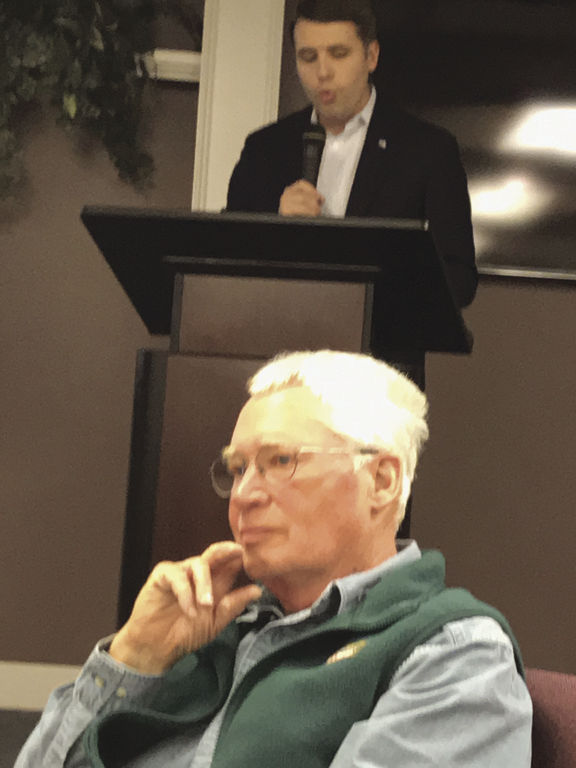Jonathan Daniels, our New Hampshire neighbor
 Originally published in The Laconia Daily Sun ›
Originally published in The Laconia Daily Sun ›
On Friday afternoons one of the e-mails I look for in my inbox is Nancy Brown’s Laconia Links. There are so many programs and activities going on in and around Laconia it’s difficult to keep up: play reading at the Belknap Mill, programs at the Laconia Library, activities at Prescott Farm and a myriad of events for seniors and high school students. A Sunday afternoon event that caught my attention was the program David Stamps, as Chairman of the Laconia Human Relations Committee, helped organize on Sunday, January 19 to honor Martin Luther King, Jr. This was the fifteenth Martin Luther King Program the Committee has held.
The afternoon began with remarks by Congressman Chris Papas and a letter from Senator Jeanne Sheheen.
In his opening remarks Mr. Stamps quoted from the website for the Museum for National Peace and Justice in Montgomery, Alabama before talking about culpability of the North in not acknowledging problems related to racial and social injustice:
“[The] Equal Justice Initiative believes that publicly confronting the truth about our history is the first step towards recovery and reconciliation.
A history of racial injustice must be acknowledged, and mass atrocities and abuse must be recognized and remembered, before a society can recover from mass violence.”
Then he introduced Dr. Lawrence Benaquist, Professor Emeritus at Keene State College who produced the film entitled Blood Brother: Jonathan Daniels and His Sacrifice for Civil Rights. It is a haunting and profoundly sad look at the life of Jonathan Myrick Daniels who grew up in Keene, New Hampshire and as a 26-year-old Episcopal seminarian student was shot on August 20, 1965 protecting two young Black women from a white sheriff. Jonathan had joined white clergy in the South to work as a civil rights worker. The film is still available to watch online, and you can find it here.
Two years ago, visiting my beloved English teacher Anna Hayden in Littleton we talked about Jonathan Daniels. Learning about my own work and interest in social justice she got up, walked to a large file cabinet and handed me her Jonathan Daniels file. It is filled with newspaper articles going back to 1965. After learning about his life and work I read Blood Brothers, Jonathan Daniels and His Sacrifice for Civil Rights by Rick Wallace and Sandra Neil Wallace and American Martyr, The Jon Daniels Story by William J. Schneider.
I was reminded of Jonathan Daniels last weekend when I went to see a screening of “Just Mercy” about the life and work of Bryan Stevenson, who like Jonathan decades ago, is working in the South to attempt to encourage redemption and forgiveness. The work that was started during the civil rights movement must go on.
Here are words Martin Luther King Jr. wrote about Jonathan Daniels:
“One of the most heroic Christian deeds of which I have heard in my entire ministry and career for civil rights was performed by Jonathan Daniels.
I have recently learned that the deputy sheriff pointed his gun through a door at the two Negro girls who were walking in front of Jonathan. Jonathan pushed the girls to the ground and gave his life for them.”
Watching films about the work of Jonathan Daniels and Bryan Stevenson one must ask: “What are we doing to make a difference in our communities?”